Institute for Social and Health Sciences (ISHS)
Find our collectiveness to realise our humanness
“As history wrestles with us, we must wrestle with history in the present, for the imagined future.” This sentiment, shared by poet, storyteller, theatre-maker and researcher, Ongezwa Mbele from the University of KwaZulu-Natal, aptly summarises the discussions that took place at the 16th Annual Peace, Safety and Human Rights Memorial Lecture.
Hosted by Unisa’s Institute for Social and Health Sciences (ISHS) in collaboration with the Psychological Society of South Africa and the Pan-African Psychology Union, the lecture series, themed Solidarities, Global Social Justice and Radical Humanism, brought together people from all parts of the world with a transnational collective of scholars and activists who formed part of the panel of speakers.
Learning from Omar and Moabi, important thinkers of the South African liberation struggle
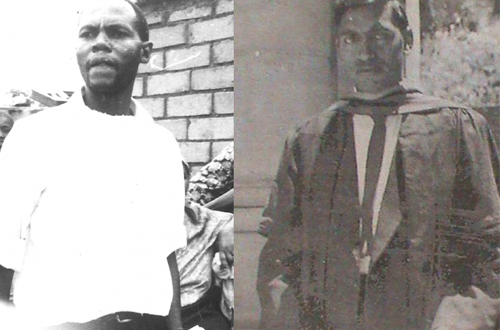
The Annual Peace, Safety and Human Rights Memorial Lecture hosted by the Unisa Institute for Social and Health Sciences is done in memory of the late Abdullah “Dullah” Mohamed Omar, and Joe Moabi.
As explained by Professor Shahnaaz Suffla from the ISHS, the Series, in memory of the late Abdullah “Dullah” Mohamed Omar, and Joe Moabi, seeks to highlight the new frontiers and challenges facing the culture of democracy, peace, safety and human rights in South Africa and globally. The annual event has been endorsed by the Omar and Moabi families. Omar and Moabi fought a vigilant and uncompromising war against inequality and oppression. “Their legacies remind us that the fight against oppression and tyranny is never over and that we are required to constantly renew our commitment to the cause of development, equality and freedom.”
The Series, which over the years has ensured plural and collective forms of engagement, has been forged in the flames of their legacies, and as such, seeks to emblazon the agencies of peace, safety, human rights and social justice for all. The Series aims to deepen understanding of freedom and prepare society meaningfully to implement the ideals of democracy.
Delivering a message on behalf of the family of Abdullah “Dullah” Mohamed Omar, Professor Premesh Lalu said that Omar was a very important thinker of the South African liberation struggle. “He’s is a humanism that we should strive for, believe in, and work every day towards achieving.”
Ntie Chidi Moabi, first grandchild of Joe Moabi, delivered the Moabi family’s message. He always encouraged his children and all others he crossed paths with to always be the best they can. In honouring her grandfather, she read the poem, A Return to Love by Marianne Williamson. The poem is often attributed to the first democratic president of South Africa, Nelson Mandela, as he used the inspirational passage at his presidential inauguration in 1994.
The responsibility lies within us all
Professor Puleng Segalo, Chief Albert Luthuli Research Chair and Professor in Unisa’s Department of Psychology, said before the conversation begins, it is important to pause and think of recent events such as George Floyd’s death by the actions of a white police officer in the USA, which resulted in the slogan, “I can’t breathe”, and the white woman who called the police after she felt threatened by a black man who was bird watching in New York, USA. She also highlighted how the Mediterranean Sea is fast becoming a death trap for African migrants. She said these incidents, among others, demonstrates similarities of human oppression across borders.
Such incidents also raise an important question of what “What does it feel like to be constantly considered a sub-human being.” Professor Segalo said it was important to ask how peace can be imaged in this unwell world. “This is a responsibility that all of us carry, all of us have to do serious introspection, how does the work we do contribute to a just society.” She added that “humanity is relational, and we are interconnected, and our suffering does not happen in isolation”. Furthermore, she said: “We need to find ways to tell our stories, to challenge the status quo – from the global north and the global south – it is at the uncomfortable intersections where change can happen.”
The relationship between anti-Blackness and Islamophobia
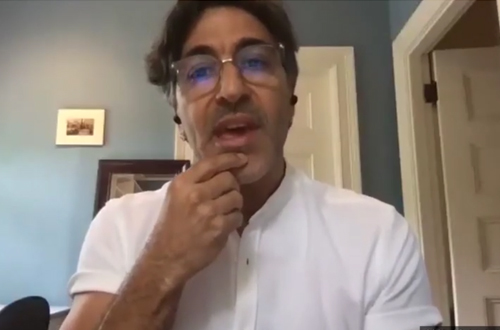
Pictured is Prof. Stephen Sheehi (College of William and Mary, USA).
Professor Stephen Sheehi from the College of William and Mary, USA, spoke on the connection between Islamophobia and anti-Blackness. He said the high profile targeting of politically engaged black American Muslims alerts the world to the relationship between state criminality against Black people in the USA and the ways in which Islamophobia and anti-Arabness work in service of anti-Black structures.
“Today I am discussing the relationality of the USA’s enforcement of white supremacy through the association of Islamophobia and Blackness. This relationality, that is whiteness and the state in relation to Arabness, Muslimness and Blackness, is calibrated around suppressing and regulating Black Consciousness, as Steve Biko would say, or Black presence as Tony Morrison would say.”
He said that Black power activists in the USA, Black consciousness thinkers that cut across the Caribbean, Africa and North America, reveal that there are similarities in the Black communities in these regions. “There are a few degrees of separation that lie between Black American communities and those in Africa and the Caribbean; and speaking to these commonalities remains at the heart of the developing society and of developing solidarities between our shared commitments to Black and brown liberation, and the demise of global racial capitalism and imperialism.”
Professor Sheehi added: “Whether through apartheid, brutal embargoes, settler occupation, military innovation, planes or drones, Islamophobia is a symptom and an accomplice of anti-Blackness. They make apparent our shared histories and structured alienation but also our shared identifications and desire. It brings to light our will to liberation. Here psychologists hold a unique position because total liberation involves every facet of the personality. Independence is not a magical ritual but an indispensable condition for men and women to exist in. True liberation in other words is to master all of all the means necessary for the radical transformation of society.”
Voices from across the world speaking in solidarity
Itumeleng Moabi from the Centre for Social Change, University of Johannesburg, based her address on her experience of visiting Palestine. She delved into the complexities of resistance, particularly in Palestine and South Africa in the context of comparison of youth activism in a township setting and a refugee camp, one of the largest in Bethlehem called the Asia refugee camp.
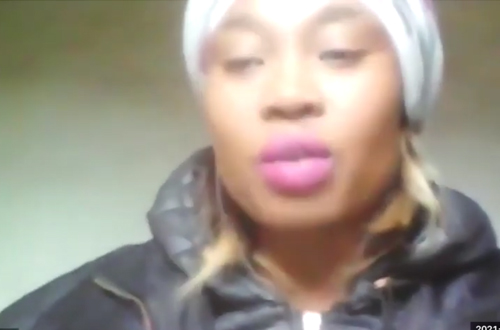
Pictured is Itumeleng Moabi (Centre for Social Change, University of Johannesburg).
“When I look at today’s theme, when we speak about solidarities, global social justice and radical humanism, these are some of the components of what became a series of nostalgic events that that swept me away. During my research, I did ask the question on solidarity and what it means to be in solidarity with the Palestinian movement. What I encountered while I was in Palestine is the levels of solidarity among the Palestinian people.”
She said the spirit of involvement of community activism is inculcated in children from a very young age and that there are intergenerational conversations occurring. “The baton is passed, the seed is planted and it's nurtured throughout time, so a young person, such as a seven year old, can give you the history of the struggle of the Palestinian refugees as if they themselves were there.”
Ms Moabi said in South Africa there may be political schools, but they are in their infancy in comparison to the level of intergenerational conversations that are happening on the ground in Palestinian refugee camps, their families and communities. When we speak about radical humanism, this is where we find the connection.”
She added that the global social justice movement needs to recognise that we are all facing one enemy. “The director of the Palestinian museum of natural history pointed out that the only way we can truly show true solidarity is if we can truly resonate with each other’s struggle and see it for the similarities we share. He used the example of a time when he was invited to a talk in India and to his surprise he was quite caught off guard because he could not understand why this remote community in India would want to hear from a professor who is from Palestine, and the answer was quite simple, he was told we are all facing one enemy.”
A decolonial future of re-existence
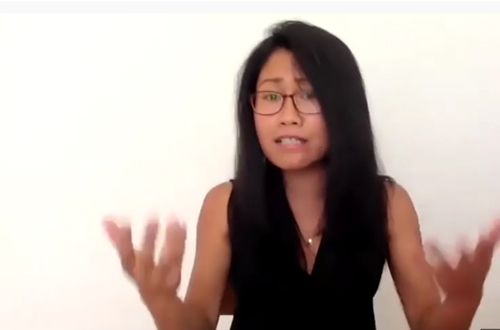
Dr Rosa Cordillera A Castillo from Humboldt Universität zu Berlin, Germany
Dr Rosa Cordillera A Castillo from Humboldt Universität zu Berlin, Germany, focused on memory work in struggles against violence, oppression and dehumanisation as a decolonial attitude, posture, composition, and force. She discussed and drew lessons from the Model Islamic Liberation Front (MILF) will to remember the atrocities committed against Muslims in the Philippines as well as stories of survival and how this shaped their struggle for the right to self-determination. “From this we can draw insights into thinking about the larger questions we want to engage with in this panel on solidarity, global, social justice, and radical humanism.”
Dr Castillo said harnessing the colonial potential of memory work for local and global liberatory projects necessitate carefully looking at the interplay of memory and imagination. Thinking of creative modes of looking at the past linking to the present and the future. “So as a mode of circulation and politics of transmission of experiences, looking at the narratives and meanings of the past and what kind of present and future this memory work tries to build.”
She said while her research is focused on a local struggle in the Philippines, the lessons learned from what the MILF did and how they proceeded with their memory work towards their struggle for self-determination, can perhaps be an entry point to thinking through building solidarities across various parts of the world.
“In similar contexts of oppression and excavating subjugated tests and surfacing various histories and redefining what human export to be, memory work that challenges dominant discourses does not necessarily make for the colonial project; such memory work must be accompanied by a sustained critique and pushback against the coloniality of knowledge being in power and colonialities material, political, and societal structures and consequences so it's a decolonial future of re-existence.”
Reject hegemonic reasoning
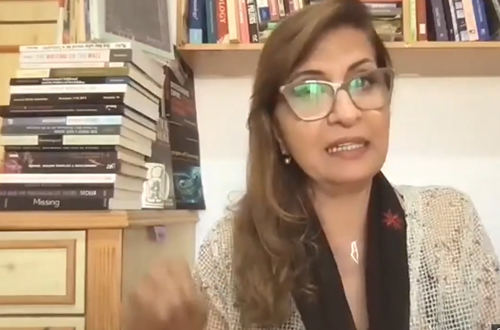
Professor Nadera Shalhoub-Kevorkian from The Hebrew University of Jerusalem, Palestine
Professor Nadera Shalhoub-Kevorkian from The Hebrew University of Jerusalem, Palestine, said that agreeing to speak at this lecture is her way of finding a community of life in solidarity. “In my talk, I wish to look at the omnipotence and omnipresence of secrecy within the Zionist settler colonial project which evicts and uproots the colonised, maintains political instability, and impossibilises liveability for the native because it persecutes and traumatized the mind and the psychic.”
She asked: “How does secrecy re-articulate the political, how does the secret information operate politically, and how via secrecy are emotions and affects recycled into the political to allow the colonial state to claim the dangerousness, the disposability and or terrorism of the other?”
Professor Nadera Shalhoub-Kevorkian said in Palestine they are taught that the lives of the colonised are marked by secrecy and are reduced to secret threats. “Their social relations, aspirations, future plans, hopes, bodily safety, their income, their movement, their life, directly or by implication are always disabled producing a cultural reality.”
Highlighting Frantz Fanon’s work, she said that he suggested that “we engage with the connection between the violence of the political and the psychic within the colonial context”, adding that Fanon explained how colonialism is “a factory where madness and mental disorder are being manufactured.”
She asked, “how can we work together to construct a solidarity under conditions of colonial secrecy”, adding that she believes without international solidarity, entrapment increases, and deterrence increases. “We in Palestine are not lucky like you in South Africa and your leadership to gain enough international solidarity and this is what we need at this point.”
Professor Nadera Shalhoub-Kevorkian said colonial secrecy can be challenged by the daily acts of the children in Palestine, daily acts of men and women, by a community of activists with amazing love, and by innovative resistance of youth fighting disposition. It can be further challenged by the global solidarity in South Africa and Kashmir, from native communities the world over, and Black lives matters activists. “We all need to reject the colonial fact, reject reasoning, and reason is crucial here, the hegemonic reason.”
In conclusion, she said the creation today of psychic bonds and not material structures are the new terrain of history making. “I call on all of you to act in solidarity against the colonial structure of entrapment, creating psychic bonds and new paths of liveability against brutal uprooting.”
A lecture series with diverse voices
Also forming part of the programme were reflections and questions from the audience, moderated by Professor Garth Stevens, President of the Psychological Society of South Africa and Dean of Humanities at the University of the Witwatersrand. Professor Stevens also responded to the presentations made by the panellists.
Professor Kgomotso Masemola, Executive Dean from the Unisa College of Human Sciences thanked the ISHS, which is under the leadership of Professor Mohamed Seedat, for ensuring that there is a lecture series of this nature. He said he was encouraged by the diverse voices that made up the programme and who interrogated the theme and subject matter. “In the spirit of Omar and Moabi, we must push the boundaries of human justice and solidarity,” he concluded.
Click here for the brochure of the 16th Annual Peace, Safety and Human Rights Memorial Lecture which includes profiles of, Abdullah “Dullah” Mohamed Omar, and Joe Moabi; the panelists from the 2021 lecture; and the speakers from previous years
Watch the 16th Annual Peace, Safety and Human Rights Memorial Lecture below.
* By Rivonia Naidu-Hoffmeester
Publish date: 2021-08-24 00:00:00.0


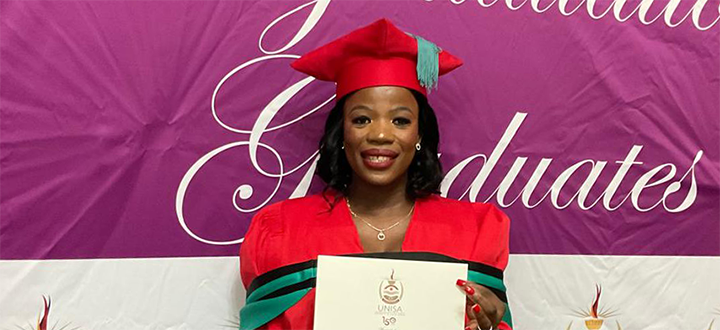 Wielding her Unisa PhD, Botswana educator champions early childhood development
Wielding her Unisa PhD, Botswana educator champions early childhood development
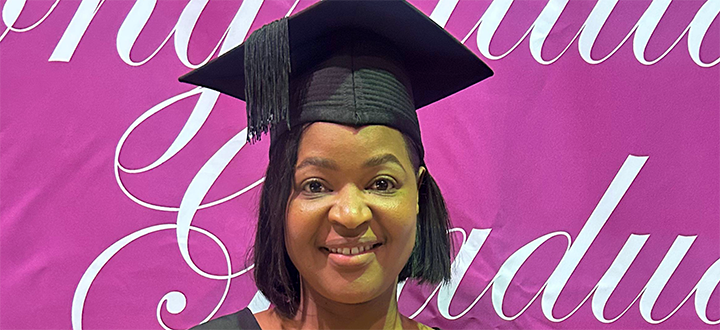 Proud Unisa alumna bridges distance and fuels career growth
Proud Unisa alumna bridges distance and fuels career growth
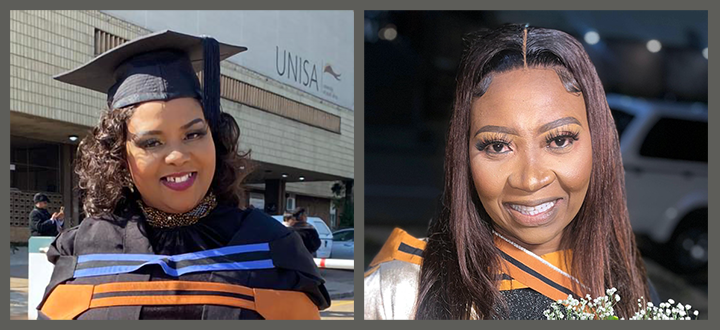 SAPS women in blue graduate at Unisa
SAPS women in blue graduate at Unisa
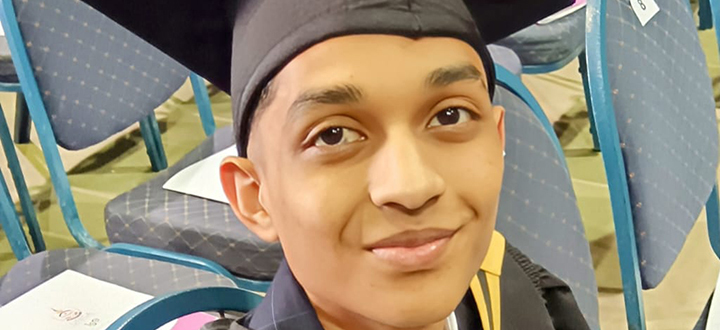 Degrees of determination: Stories of grit, growth, and graduation
Degrees of determination: Stories of grit, growth, and graduation
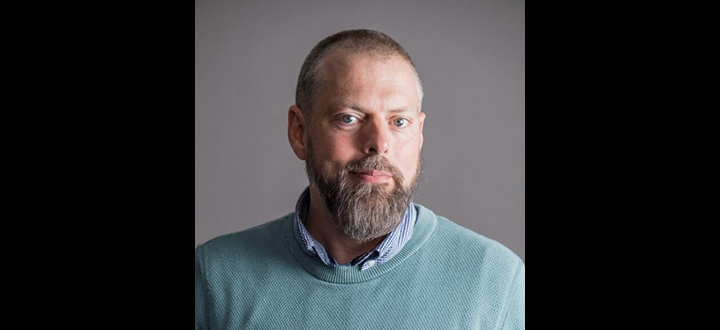 Unisan awarded prestigious British Academy Equitable Partnerships funding
Unisan awarded prestigious British Academy Equitable Partnerships funding